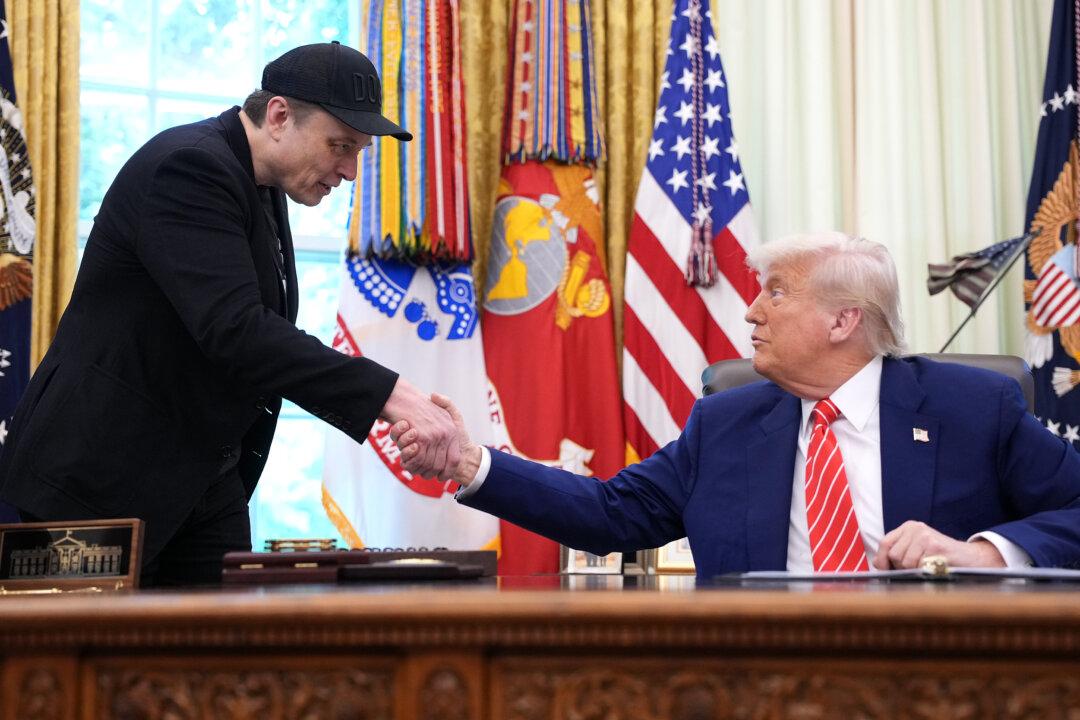What is your sense so far of Trump 2.0? Everyone has an answer these days. It’s likely quite intense, too.
That is because the arrival of President Donald Trump in Washington for a second time has engaged the public as civic spectators more than ever before. We have information systems in place that give us real-time access. We can watch the Cabinet meetings, the news conferences, the events, even as they happen, and through many different sources. This is access without precedent.
One thing has become clear: Reforming the government is even harder than we had believed.
The first 100 days were for the ages. The appointments have been smart and high level. Many executive orders have been inspiring. The expectations for great progress have been extremely high. It seemed as if most issues were going to be solved in public health, the budget, waste and fraud, transparency, cover-ups from the previous administration, and so much more.
That was then. Now matters are different. There is a perception extant that everything has stalled. The appointees themselves have faced countless internal battles. The court blockages are overwhelming. The bureaucracies and the industries that control them are clearly trying to outlast the political appointees in this administration.
This is what they have done for a full century. The real rulers of Washington have typically not been the temporary office holders, but rather the deeper stakeholders, i.e., the permanent state that largely ignores elections.
We should resist cries of betrayal and so on, remembering that none of us has any idea of the fullness of the barriers to real reform. After all, this is the first time that we’ve seen an experiment on this level and with this intensity. Intentions are great, but reality is another matter, and all the momentum of history suggests that they are going to fail.
We want it to be different. But will it be? We have no way to predict.
Let’s recount the experience of Elon Musk. From 2020 at least, he had grown increasingly concerned about the political direction of the country. The government of California had attempted to shut down his factory. He encountered limits when trying to speak out. He realized that this had developed into full-blown censorship. Then he watched the migrant crisis unfold and the rise of woke ideology.
He decided to take great risks to his companies by speaking out, and then helping Trump with the campaign. Musk bought Twitter and turned it into X to save free speech. He became enormously fascinated by public affairs in ways he had not been previously. With that came a concern over immigration, government waste, the debt, monetary policy and inflation, and so much more.
He funded campaigns and innovated the idea of a new Department of Government Efficiency (DOGE) that would bring his managerial prowess to government itself. Trump won a second term in part because of Musk’s involvement. Musk got to work the day of the inauguration, sending swarms of techies throughout the government to figure out what was going on.
That’s when he met impenetrable barriers. The courts started blocking access. He found out the limits on firing public-sector employees. He discovered that the real issues in government were beyond anything he had previously imagined but, as his ambitions for change increased, so did the barriers stopping his ability to fix the problem.
The media has been brutal. Just a few days ago, David Brooks of The New York Times compared Musk to Pol Pot and Stalin. Activists started keying Teslas and even burning dealerships. They inspired a campaign to sell stock of his companies. It was a flogging on a level we’ve never seen.
At some point in the first 100 days, Musk started dealing with skepticism even from the new Trump Cabinet, and Trump did not always back him. Then he observed how the money flows were more impervious to change than he thought. In his companies, he is always the CEO, but in his time in government, he was a mere adviser.
Then it got worse when it became obvious that Congress would largely ignore DOGE.
When Musk’s time was up as a special government employee, he left. He held a news conference reasserting his ideals and goals, expressed some frustration, and left. The opportunity of a generation—one of the most capable businessmen alive put to the task of reforming government—seems largely lost.
The cynics win yet again!
This experience has repeated itself on a range of matters. In the public health realm, we’ve seen heroic work from Robert F. Kennedy Jr., and his outstanding appointees at the National Institutes of Health and the Food and Drug Administration (FDA). They are fighting the good fight and doing wonderful things. Their news conferences are riveting, and their writings and interviews are thrilling.
They make wonderful announcements with every intention of changing policy. Then the Centers for Disease Control and Prevention waits days and days, and longer even, to commit the changes to the public website. The FDA, meanwhile, seems to run its own show regardless.
The Department of Health and Human Services said that no new COVID-19 shots would be approved without randomized controlled trials with a placebo. Only days after the department’s proclaiming of this, the FDA announced the approval of a new shot designed for everyone but the most healthy adults, with no public data on efficacy or safety or even a published study.
The new shot by Moderna, shockingly called NexSpike, seems to have sailed right through, against the objections of all the political appointees. They just so happened to have it sitting on the shelf ready for approval. It has likely been in development since 2023 or 2024.
The final approvals really just happened last week. It’s mind-blowing. None of the existing and new political appointees wanted this. They all opposed it. But here we are.
Just watching the unfolding of events in real time, and witnessing the sheer perfidy and malevolent wiliness of the legacy establishment, one is stunned and in awe of the power of that which the good guys are confronting. No wonder so many generations of reformers have simply given up!
Meanwhile, the mainstream media has taken great joy in documenting the inability of Trump’s appointees to control the bureaucracy and the industries that have captured them. It’s as if all the usual suspects are cheering for the establishment over the idealists.
And let’s face it. The reformers in government now are in the several dozens, but the agencies and the industries that direct them number in the millions, controlling hundreds of billions if not trillions. The reformers are doing their best, but they inhabit a world built and run by someone and something else.
As a result, they are outgunned at every turn. For now.
I have no doubt about the sincerity of DOGE and the Make America Healthy Again and Make America Great Again movements. But we should not be naive about the prospects in Washington. There is more going on in these systems, something the rest of us cannot fathom, something that the appointees cannot control.
We should resist the cynical conclusion that all of public life and the debates we have are for naught, that the real powers are in hiding and will forever be in control. Surely not, not in the long run. The long run requires not just a change in the elected regime, but also a complete revolution in public opinion that can demand change from the outside.
If we think that we can easily vote freedom back into the genuine theme of public life, given everything we’ve been through, we haven’t been paying attention. It is going to require more than that. As many sacrifices as people have made heretofore, much more is going to be required to get from here to there.
Freedom as an ideal is the last thing that the machinery of state wants right now. Please be aware of that, and avoid blaming the people who are trying to fix the problem, for the trajectory has not been stopped by even the best and brightest.
This is not a counsel of despair, but rather a heads-up that the problems in government today are much deeper than we ever imagined.







